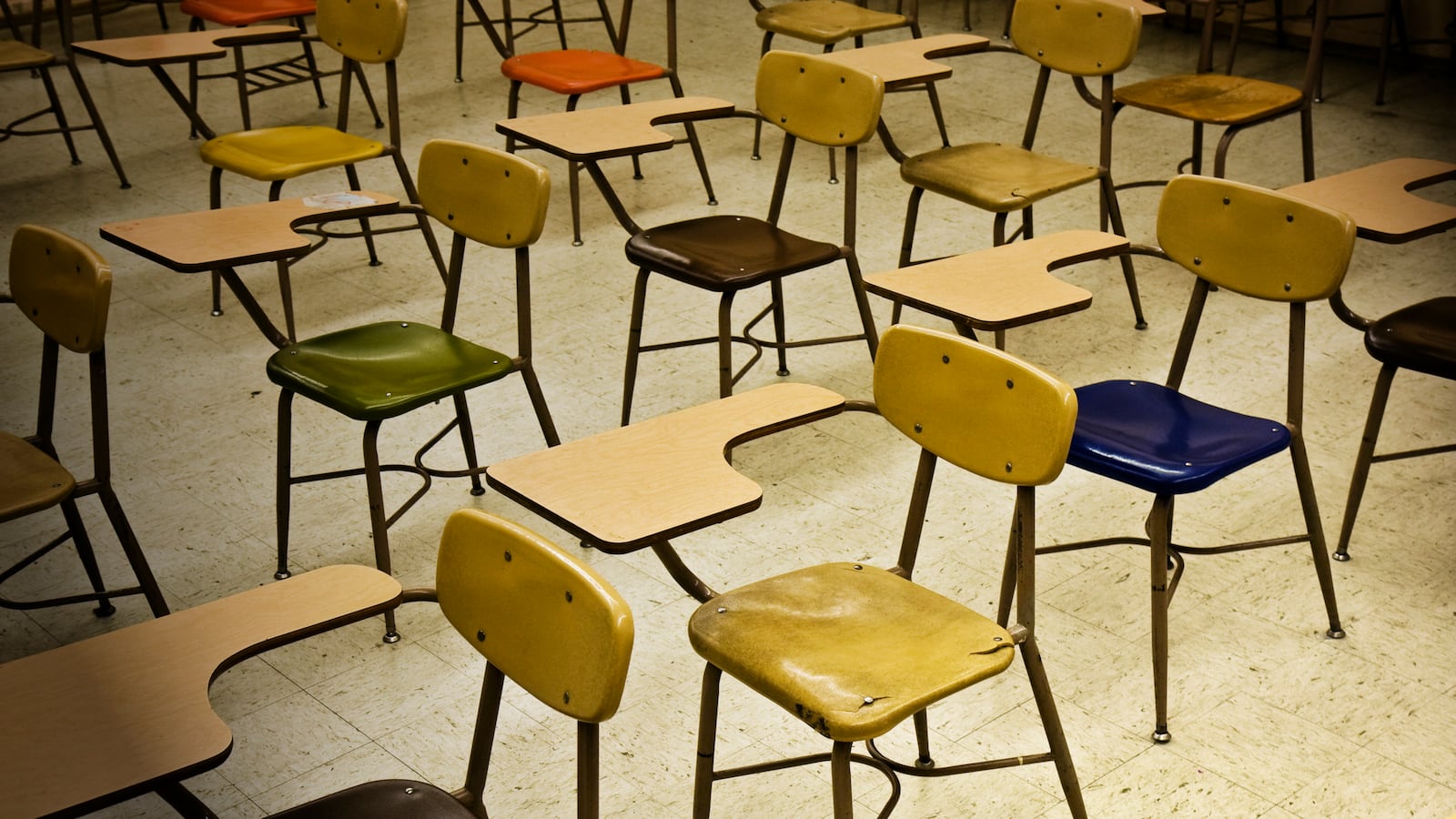Michigan schools have expelled far fewer students since the state enacted laws aimed at cutting back on expulsions. But an advocate who’s pushed for an end to zero-tolerance policies pointed out persistent problems and told elected state education leaders this week that, “We shouldn’t start celebrating yet.”
This is why: Peri Stone-Palmquist, executive director of the Ypsilanti-based Student Advocacy Center, told State Board of Education members that in the 18 months since the new laws took effect in 2017, expulsions have dropped 12 percent. But she’s concerned that too many school leaders don’t understand the law or are ignoring its requirements. And she believes some schools are finding other ways of kicking kids out of school without expelling them.
Michigan did away with zero-tolerance policies that had earned it a reputation for having some of the toughest disciplinary rules in the nation. In their place, lawmakers instituted new rules, such as requiring schools to consider seven factors — including a student’s age, disciplinary record, disability and seriousness of the incident — in making expulsion decisions.
“We have had districts and charters tell advocates that they would not consider the seven factors at all,” Stone-Palmquist said. Others aren’t sharing with parents and students how those seven factors were used. And she said there’s a general “lack of understanding of lesser interventions and the persistent belief that lengthy removals remain necessary.”
That’s a problem, she and others say, because of the negative consequences of kicking students out of school. Studies have shown that students kicked out of school are often missing out on an education and are more likely to get into trouble. Advocates also worry that expulsion exacerbates what they describe as a “school-to-prison” pipeline.
She said advocates are noticing that more students are receiving long suspensions, an indication that some schools are suspending students rather than expelling them. Hiding students in suspension data won’t work much longer, though. Michigan now requires schools to collect such data, which soon will be public.
Stone-Palmquist also said that some schools aren’t even going through the expulsion process, but simply referring students with discipline issues to “understaffed virtual settings.”
“Once again, the students who need the most get the least, and no one has to report it as an expulsion.”
Stone-Palmquist gave an example of a ninth-grader involved in a verbal altercation who was expelled for a long time for persistent disobedience, “despite our team lining up extensive community resources for him and despite the district never trying positive interventions with him.”
In another case, a fifth-grader was expelled for 180 days for spitting at another student who had done the same to them first. Stone-Palmquist said the seven factors weren’t considered.
“We were told at the appeal hearing that the student’s behaviors were too dangerous to consider lesser interventions.”
She and Kristin Totten, an education lawyer for the ACLU of Michigan, provided board members with statistics that some members found alarming. Totten noted that an ACLU review of data collected by the federal government shows that for every 100 students in Michigan, 38 days are lost due to suspension. In Oakland County, 26 days are lost for every 100 students. In Macomb County, it’s 35 days and in Wayne County, it’s 55 days.
One child who’s experienced trauma for years was repeatedly suspended from multiple schools. The 11-year-old has been diagnosed with post-traumatic stress disorder and attention deficit hyperactivity disorder. This school year, she’s been suspended for 94 days.
“Never once were the seven factors mentioned to her mother,” Totten said.
Stone-Palmquist asked board members to consider recommendations, including developing a model student code of conduct that incorporates the new rules, partnering with the advocacy center to request an attorney general’s opinion on what districts are required to do, and expanding data collection.
Tom McMillin, a member of the state board, asked whether the state should consider financial penalties, such as withholding some state aid.
“I’m a fierce advocate for local control. But in areas where the incentives might not be there to do what’s right … I’m fine with the state stepping in,” McMillin said.
Board member Pamela Pugh said she appreciated the push for the board to “move with great speed.” She said the data and stories provided are “compelling, as well as convincing.”
Stone-Palmquist said that despite her concerns, there have been some successes.
“Districts that used to automatically expel 180 days for fights, for instance, have partnered with us to dramatically reduce those removals with great outcomes,” she said. “We know alternatives are possible and that they actually help get to the root of the problem, prevent future wrongdoing and repair the harm.”
The Detroit school district didn’t come up during the hearing. But on the same day Stone-Palmquist presented to the state board, Detroit Superintendent Nikolai Vitti gave a presentation to his local board of education about what’s happened in the months since the district embarked on an effort to improve school culture by revising the student code of conduct, hiring deans for each school, and providing training on alternative discipline methods.
The bottom line: Vitti said that schools are booting out dramatically fewer students and greatly increasing alternative methods of discipline. In-school suspensions are up, given the push against out-of-school suspensions.
But the changes have also raised concerns. Some school staff have said the new rules are tying their hands. Vitti said it will take time for the changes to take hold, and he outlined some areas that need to improve, including more training.

